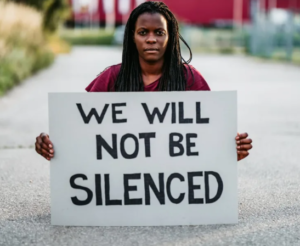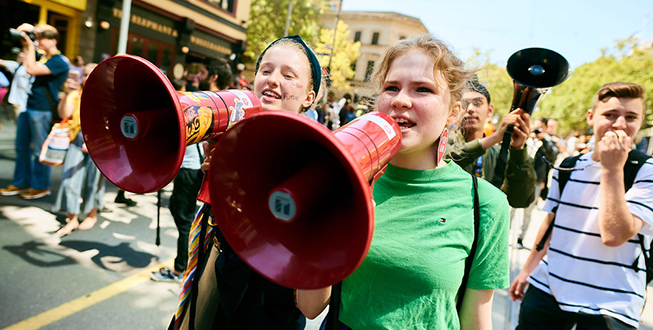|
Getting your Trinity Audio player ready...
|
In this article, we will take a closer look at some of the most common challenges faced by activists worldwide.
We will discuss specific issues and difficulties such as financial barriers, censorship, violence, legal repression and more.
Additionally, we will provide insight into how activists worldwide can overcome these obstacles to create meaningful positive change.

Financial Barriers
One of the most common challenges faced by activists is financial barriers. Activists often need to travel, organize meetings and events, produce educational materials, and more.
All of these activities require money, which can be a major obstacle for those who lack the necessary resources.
To overcome this challenge, activists can rely on crowdfunding platforms or seek out grants or donations from organizations or individuals that are sympathetic to their cause.
Censorship
In many countries around the world, censorship is a major issue that hinders activists’ ability to spread their message and advocate for change.
Governments may block websites or social media accounts related to activism and suppress freedom of speech to prevent people from organizing protests or engaging in civil disobedience.
To counter this, activists can use secure communication tools such as Tor or Signal to stay one step ahead of censorship.
Violence
Another major challenge faced by activists is violence and intimidation from those in power.
Activists are often targeted with physical threats, harassment, and even murder to discourage them from speaking out against injustice.
To protect themselves, activists must be aware of their rights and safety precautions and be prepared to take action when necessary.
Legal Repression
In some countries, laws are used as a tool of oppression against activists and dissidents.
Laws may be used to criminalize peaceful protests or restrict the activities of civil society organizations.
To combat this, activists should become familiar with their local laws and international human rights standards and take steps to ensure their activities are not in violation of the law.
Online Harassment
Activists have become increasingly vulnerable to online harassment and abuse as a result of their activism.
This can include cyberbullying, doxing, and other forms of digital threats. To protect themselves from online harassment, activists should use strong passwords, two-factor authentication, and VPNs when possible.
Additionally, they should be aware of their rights regarding online privacy and security.
Lack of Support
Activism can be a lonely and isolating endeavor, as many activists find themselves without the necessary support from their communities.
To overcome this challenge, activists should look to connect with like-minded individuals and organizations that share their same values and goals.
Additionally, they should seek out mentors who can provide guidance and advice on how best to achieve their objectives.
Burnout
Activism is often stressful and exhausting, which can lead to feelings of burnout or disillusionment.
To prevent burnout, activists should practice self-care and make sure to take breaks when necessary to recharge and stay motivated.
Additionally, activists need to celebrate their successes to keep their morale high.
Lack of Funds
Money is often a major obstacle for activists, as it can be difficult to raise funds for their campaigns and initiatives.
To overcome this challenge, activists should look to crowdfund their projects or seek out grants and other forms of financial support from organizations that share their values.
Additionally, they should explore alternative sources of funding such as online money-making opportunities or cryptocurrency donations.
Lack of Access to Resources
Activists often lack access to the resources and tools that would enable them to effectively advocate for their cause.
This can include access to legal aid, technical expertise, or even necessities such as food and shelter.
To address this challenge, activists should seek out support from organizations and individuals who are willing to assist.
Additionally, they should look into online resources that can help them gain the necessary skills and knowledge to be successful in their activism.
Digital Surveillance
In some countries, activists are subject to digital surveillance and censorship. This can include monitoring their online activities, blocking websites, or even state-sponsored hacking.
To protect themselves from digital surveillance, activists should use encryption tools and other security measures when communicating online.
Additionally, they should be aware of their rights regarding freedom of expression and take steps to ensure their activities do not violate the law.
Conclusion
Activists worldwide face a lot of challenges. Hence, activism can be a challenging endeavor, with many obstacles to overcome.
Activists must be aware of the potential risks and challenges they face, such as online harassment, lack of support, burnout, lack of funds, lack of access to resources, and digital surveillance.

